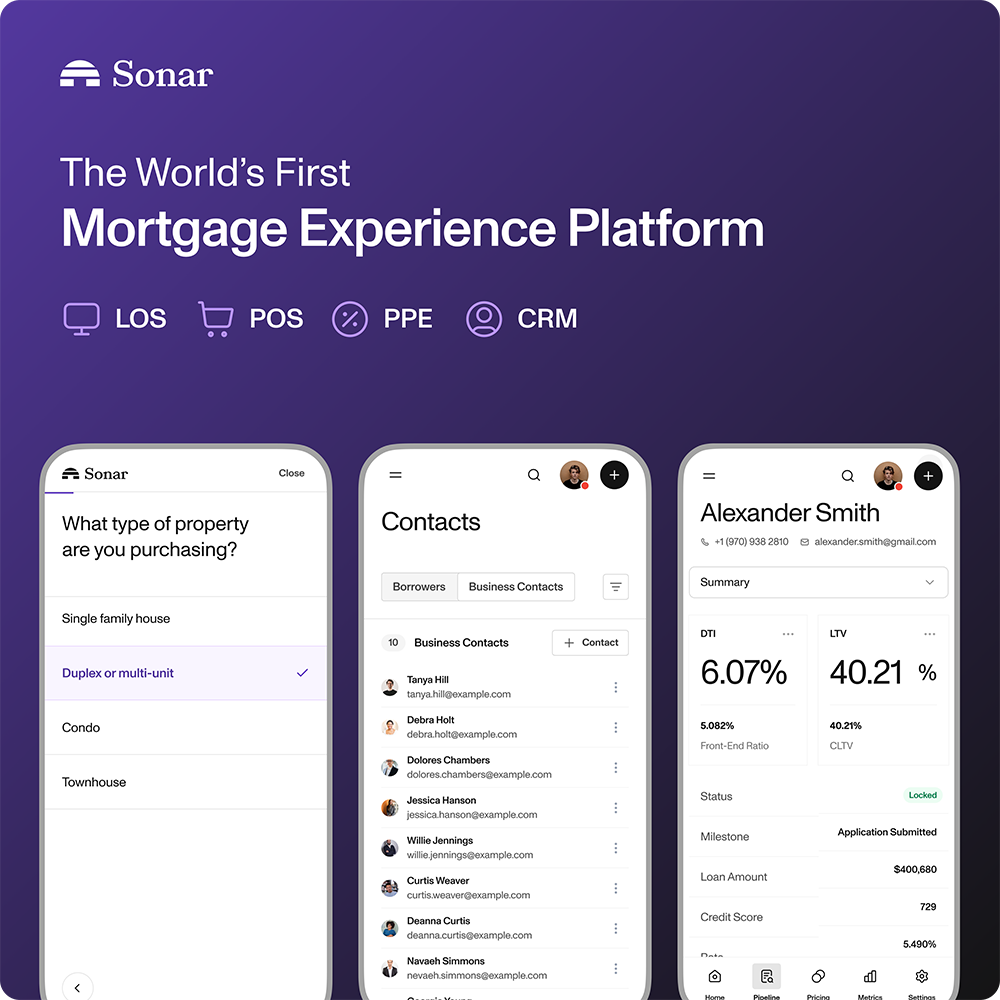If you're a mortgage originator, relationships with real estate agents build the business.
53% of originators attend at least one home closing per week, while 97% admit that real estate agents are the best source for origination leads. Nurturing these relationships helps you compete in a saturated industry. However, cultivating a strong and mutually beneficial rapport with real estate agents requires more than a friendly demeanor. In this post, we explain how to generate leads in real estate and how to add value to your agent relationships consistently.
The Significance of Real Estate Agent Relationships
Real estate agents meet potential homebuyers daily. They're in constant contact with the exact demographic you're trying to reach. If you form a partnership, you get access to this group that would be impossible to achieve on your own
This partnership can be a goldmine for lead generation. Your agents will refer borrowers to your business, and many of those borrowers will, in turn, send their connections your way. You can open a direct line to a consistent flow of qualified leads.
Tip 1: Leveraging Real-world Experience for Skill Development
There's a reason successful originators attend closings so frequently. Getting out there and experiencing transactions firsthand gives you a better feel for what buyers seek. You need to know the ins and outs of mortgage products.
You can also glean a lot of information from watching agents work. Watch what they do and ask them questions when you can, especially about marketplace trends. You can gain insights while boosting your practical know-how.
Experience is the best teacher, and lead generation in real estate is no different. Developing yourself as an expert in the industry gives you the confidence and knowledge needed to partner with real estate agents effectively.
Tip 2: Building Connections – It's Not Just What You Know, It's Who You Know
More than anything, real estate agents value trust. Merely providing financial services isn't enough for them to funnel clients to you; your competitors can do the same. It's critical to develop relationships that go beyond superficial.
60% of loan officers contact their main referral partners multiple times a week.
To form new relationships, attend networking events, conferences, casual meetups, and anything where you can connect with multiple real estate agents. You may also want to join social groups targeted toward real estate professionals. After the introductory meeting, remember to follow up. Forming these relationships is a long-term plan that requires initiative.
Tip 3: Perfecting Your Writing Skills for Effective Communication
Your voice shines through your writing, so crafting the right message is essential. If you struggle to communicate clearly, or your messages seem sloppy or unprofessional, maintaining strong industry relationships will be much more difficult.
Take the time to perfect your writing skills, including grammar and spelling. Use a professional tone in all written communication with real estate agents, whether it's through email, social media, or any other platform. First impressions matter, and this includes how you present yourself in writing.
If you need inspiration, examine writings by other originators. You can also get feedback from your team or try an online course.
Tip 4: Embracing Change and the Learning Process
Modern lead generation also relies on technology. In the future, that reliance could increase as the software becomes more sophisticated. Stay up-to-date with tech trends, and don't shy away from embracing new tools that can help streamline work and improve connections with real estate agents. Remaining flexible will make your job easier. Change is unavoidable and will touch your business even if you refuse to adopt an upgrade. Your competitors will embrace the new technology, and you'll have to follow suit or be unable to compete.
You need mortgage software to thrive in today's origination environment.
The foundation of success as an originator lies in the power of your referral network. Working with real estate agents could be the difference between a bustling mortgage pipeline and large swaths of downtime. By leveraging real-world experiences, networking smartly, and honing communication skills, you can foster relationships that generate more leads and solidify your industry reputation.
And, always be adaptable to new technology, as it can significantly benefit your business and professional relationships.
Are you keen on expanding your expertise and strategies to grow your business in the real estate market? Check out Sonar for guided knowledge and a pathway to career growth.


